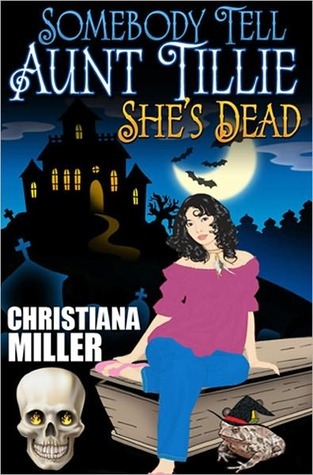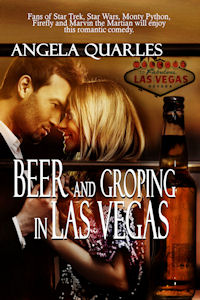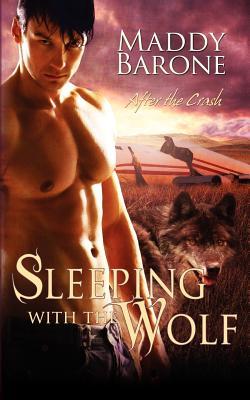At the beginning of this whole, surreal journey, I had no idea you could be evicted from your body as easily as you could be booted out of your apartment.
&
“One of the problems with being a witch is when you ask the universe a question, it generally gives you an answer. Or at least enough of one to ruin a perfectly good week.”
And thus with not one but with two killer opening lines, Somebody Tell Aunt Tillie She’s Dead begins.
Writing a line like that – let alone two lines – takes skill and craftsmanship. With much anticipation, I began reading.
Mara is a witch living in Los Angeles. She’s a witch, but she’s very leery of magic for many a reason, and she tries to keep it to the smaller stuff that can’t come back to bite her.
Around her 27th birthday, she’s about to get kicked out of her apartment by her fundamentalist Christian landlady.
So she worries over it and talks smarty-pants with her gay best friend and fellow magic user,Gus.
And then Gus talks her doing some magic against her will.
And then something bad happens, and she has bad dreams and bad feelings about what is about to come, especially since *dum dum dum* her mother died at the age of 27.
And then she frets and talks smarty-pants with Gus.
Then the landlady comes back to reiterate witches are evil and she’s still evicted.
And then Gus reassures her, and talks her into doing magic against her will.
And keep going like that through the first half of the book.
Let me stop here for a bit. This is not going to be the most complimentary review, so I’d like to say right now what I liked and give the story it’s due. The author has a fantastic voice with dialogue, especially that “you are a pain but I love you” dialogue that occurs between long-time friends. The book has that everyone-is-crazy humor, sort of reminiscent of the early Stephanie Plum books, and the author does it well. And as shown by those opening lines, the author knows how to string together a sentence in a clever way.
Now to the problems. The biggest one is the story has horrific pacing. The above back-and-forth takes almost half of the book (and this is novel-length, so that’s a lot of between friends bickering). The first few rounds between Gus and Mara were fun and had me smiling, but when we got to a third of the way through the book and that was all that had happened so far, I was getting frustrated. Bickering does not a story make.
Once we got to around the 40% mark and still no story forward momentum, I put the book down… and ended up forgetting about it.
Not long ago I came across the title and went, “Oh yeah, I’m in the middle of that, aren’t I?” I actually debated with myself if I wanted to restart it again. But I remembered what I liked about the story and the fact that sometimes the second half of the book might be better than the first, I decided to go forward and finish the book.
About the halfway point we get to the heart of the story: Mara inherits her Aunt Tillie’s cottage far, far away from LA. Once there, Mara deals with colorful locals, the ghost of her Aunt (who may/may not have her best interests at heart) a love interest, and the possibility the house itself wants to kill her… or worse.
I wish I could say the second half makes up for the first, but that’s not the case. Because of the over long set-up, this part of the story is rushed. There is so much tossed into it that the story is superficial – we’re never really given a chance to absorb anything, so we don’t have any deep feelings for what’s happening.
Also, Mara goes from being a character in her own right into taking specific actions because she needs to do them or else the story won’t work. Multiple instances I thought to myself, “Would the character I saw in the beginning do this?” From my point of view, the answer was usually no. Again, because of the rushed nature of the second half of the book, the author wasn’t able to convince me of these changes. Also, in this part of the book Mara deals with her issues surrounding her Mother, but once again, everything is so rushed that what should have been poignant and added some depth to the story was barely a blip on my screen.
The humor that served so well through the first half of the book becomes a detriment in the second half. Humor can be used to increase tension and dread, but in this case, the author was not able to pull that off. Instead, the humor turned what should have been high tension instances into shoulder shrugs.
The small-town residents are barely more than cut-outs, and the love interest isn’t. It felt like the author needed a male body (I can’t say more without going into major spoilers but anyone reading the book knows what I mean) and threw him in there. The only love story in this book was the love between a woman and her Gay Best Friend Forever.
And the ending – what was that? In all honesty, by that time, I just wanted it over and was like, “Fine. Good luck everyone.”
Bottom line – This author creates wonderful dialogue and fun supporting characters, and her humor speaks to me. On the other hand, she has no idea how to pace a story, she spends too much time on things that she shouldn’t and way too little time on areas that need more in-depth exploration, her characters tend to be a little superficial, and she hasn’t learned how to use her humor to amplify the tension – instead, the humor dilutes it. Will I read her again? Yes, but I would want to know who her editor is first.
My final grade? D+
You can find Christiana Miller at her Website.
 When I come across someone whose tagline is Geek Girl Romance Writer, well, you can see why I’d be interested, right? *Looks up at Title of Blog*
When I come across someone whose tagline is Geek Girl Romance Writer, well, you can see why I’d be interested, right? *Looks up at Title of Blog*


